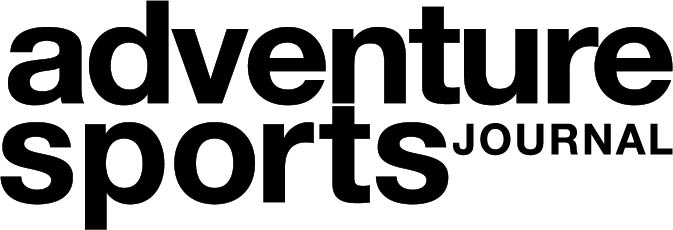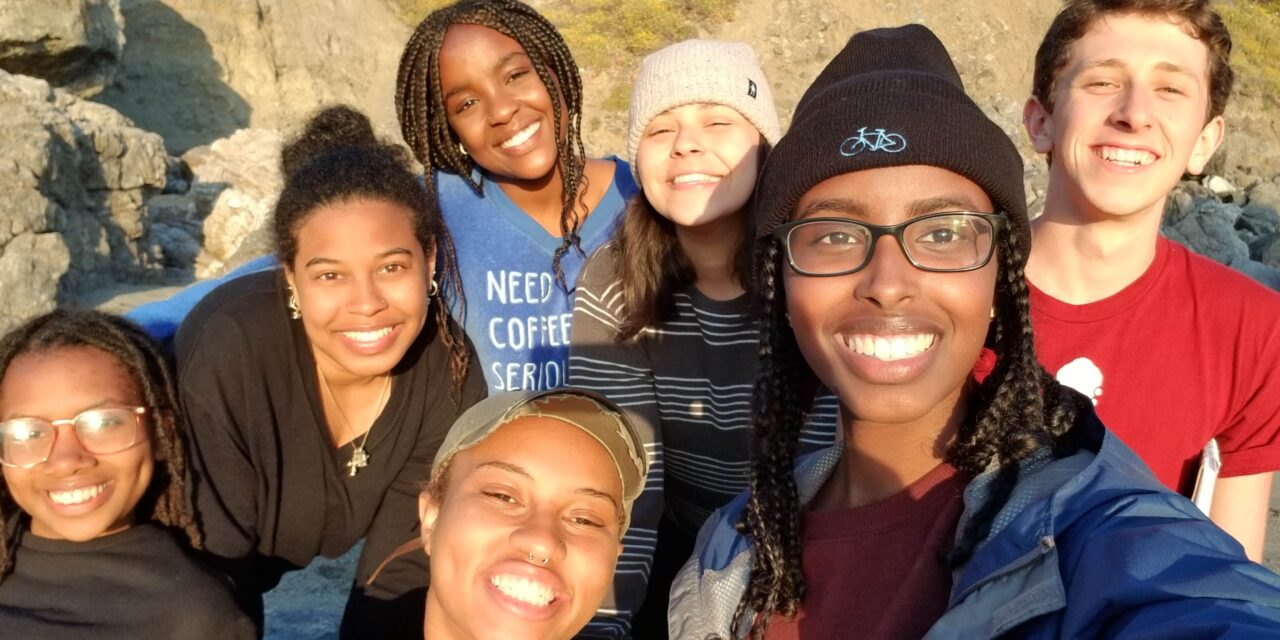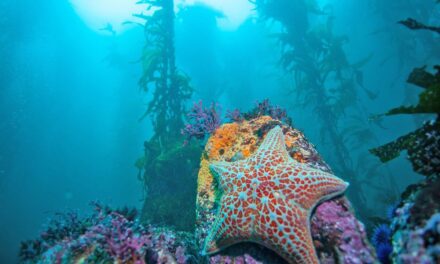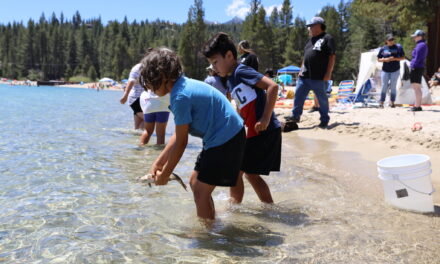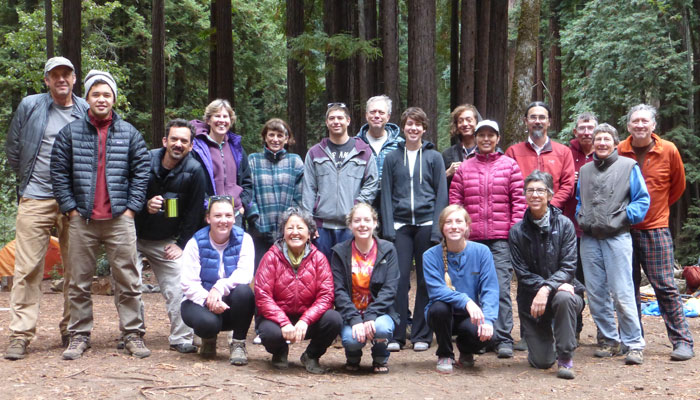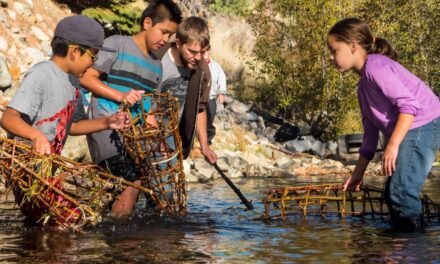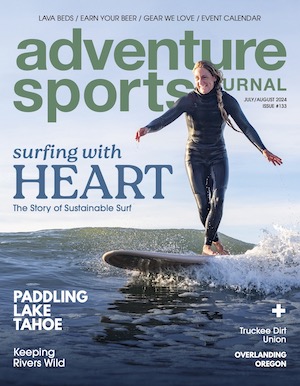Non-profits and scholarships that are helping save Earth
We are living at a critical moment in time for the preservation of our planet. We depend on our natural environment for food, water, recreation, inspiration and life itself. Saving our planet will need more than good intentions by those who identify as environmentalists — it will require the removal of historic barriers that have traditionally excluded Black, Indigenous, and People of Color (BIPOC) from the outdoors and the conservation movement.
Currently, people of color in the US are three times more likely to be “nature deprived” — meaning they have less access (and in some cases no access) to parks, paths, and green spaces. Investment in programs that create access and diversity in the outdoors is more important than ever. The US will have a nonwhite majority population by 2044. If this new majority lacks access to the outdoors and a connection to nature, it will be difficult to mobilize conservation efforts. We need diversity in the outdoors to help save our planet.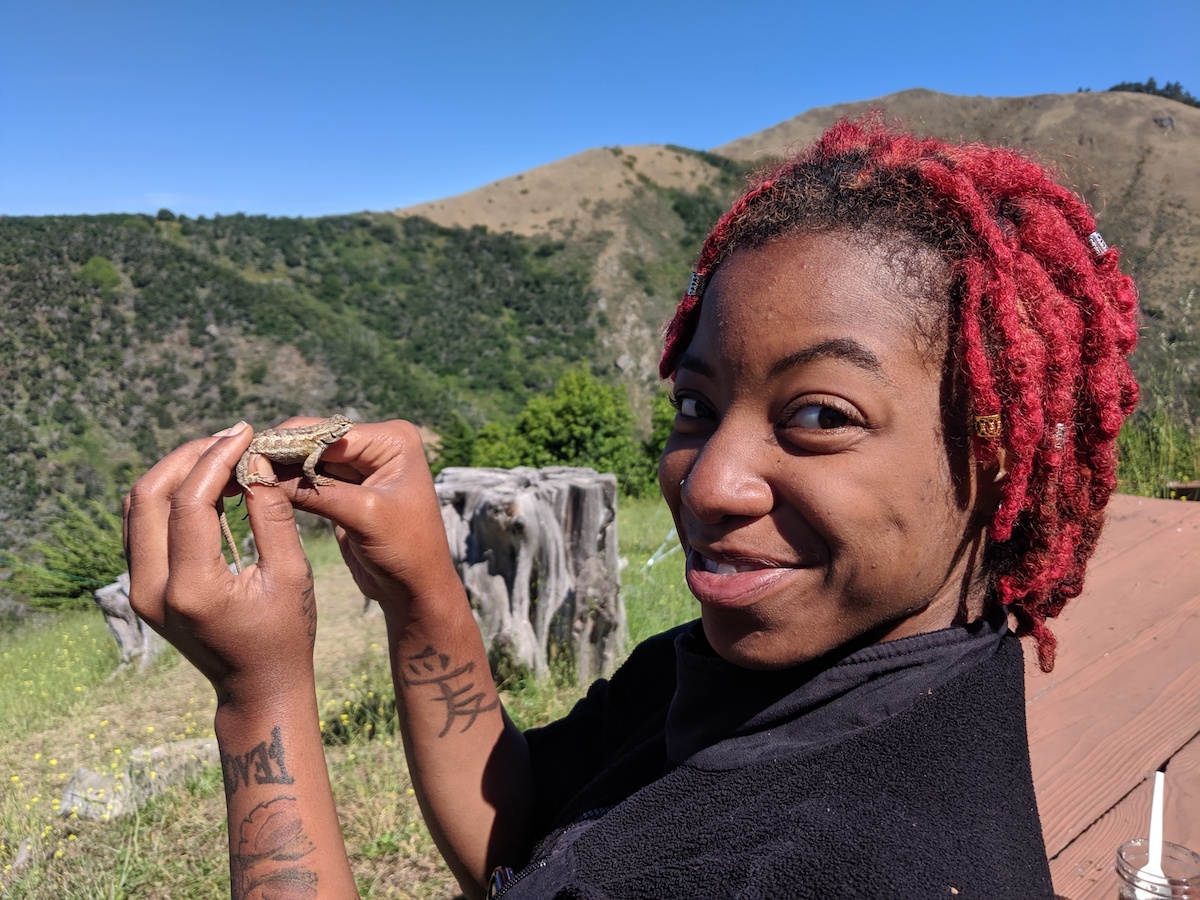
Hands on field research while exploring the outdoors is important. Photos Courtesy of UCSC Doris Duke Conservation Scholars Program.
“Passion to Profession”
With a growing awareness of the need to break down barriers to outdoor access, many BIPOC-led organizations are getting more underrepresented people into the outdoors. Organizations like Outdoor Afro, Latino Outdoor, and Indigenous Women Hike are examples of non-profit organizations that have helped to create a sense of safety and inclusion for the BIPOC community in the outdoors. Having leaders at the forefront of these organizations and leading wilderness trips helps young people of color see themselves in this space, and even as leaders themselves. This “passion to profession” approach inspires, cultivates and supports the next generation of diverse outdoor and environmental conservation leaders.
At the educational level of the “passion to profession” pipeline, scholarships like the Doris Duke Conservation Scholars Program (DDCSP) support college students who are traditionally absent from environmental conservation. Funded by the Doris Duke Charitable Foundation, this program seeks to prepare a diverse group of early career college students to become future conservation leaders. DDCSP targets college freshman and sophomores at four year institutions and provides two eight-week summer experiential learning and internship opportunities where students gain hands on field research experience, engage with conservation professionals, and get professional development training.
These summer programs take place between academic years and come with a $4,400 stipend each summer along with housing support to alleviate financial barriers for participation. Year-round mentoring, and a “Scholars for life” approach helps to ensure that Scholars receive support throughout their careers and are part of a national and global network of Doris Duke Scholars. By leveling the playing field, DDCSP helps students from underrepresented groups leave college with skills and experience that make them more competitive when applying for jobs and graduate school.
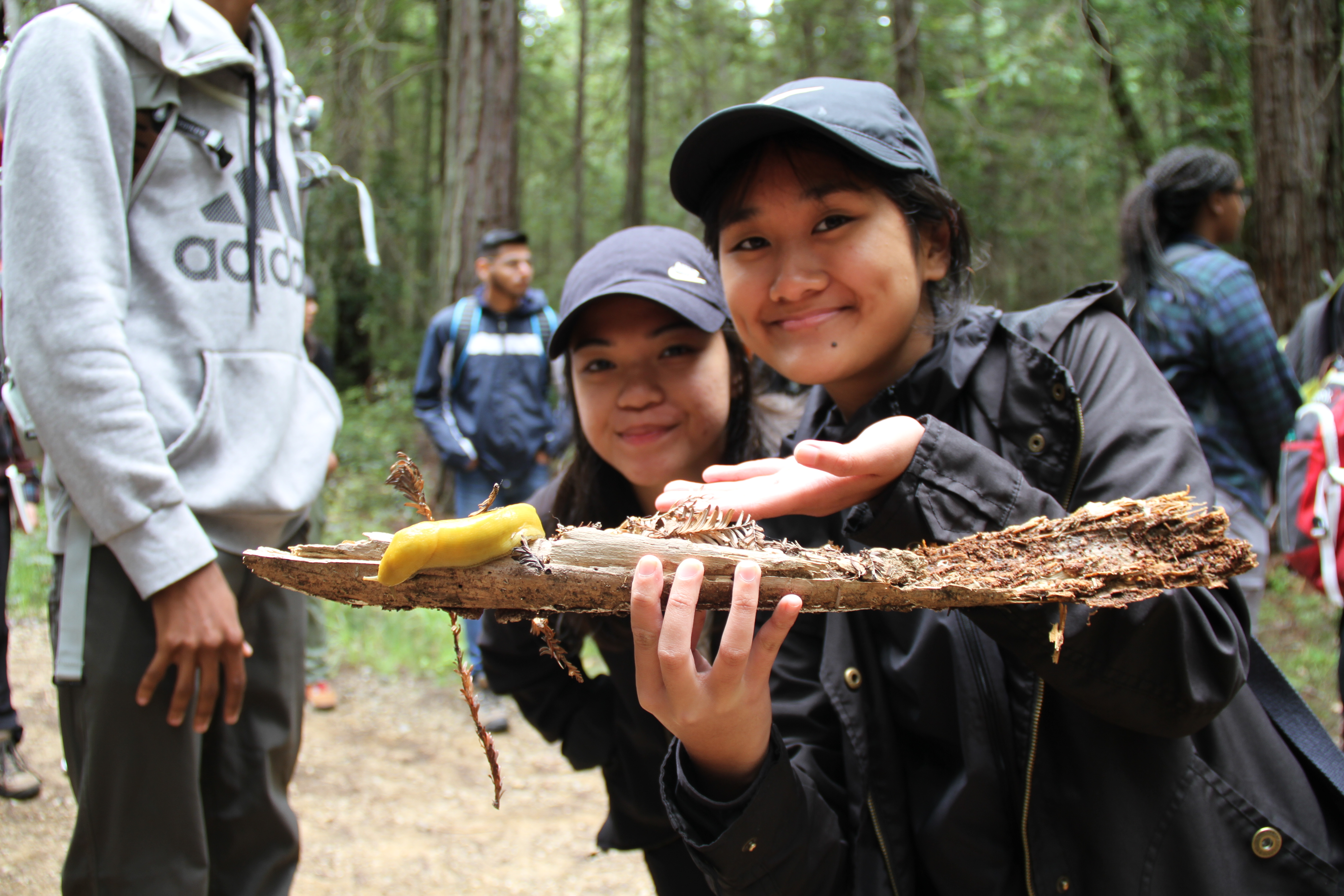
DDCSP is just one of many programs designed to increase diversity in outdoor spaces and environmental conservation. Photos Courtesy of UCSC Doris Duke Conservation Scholars Program.
Momentum for Diversity
More companies and non-profits are committing to take action to improve DEI (Diversity, Equity, Inclusion). Teresa Baker of Martinez, launched the Outdoor Industry CEO Diversity Pledge over two years ago — calling on the industry to commit to diversifying. Since then, other companies like Camber Outdoors have launched similar pledges that aim to advance DEI at the industry level. About 200 outdoor industry CEOs have taken diversity pledges, showing their commitment to achieving a more equitable and inclusive workspace.
Organizations like the Sierra Club have created a Department of Equity, Inclusion, and Justice, which aims to center key principles of equity, justice, and inclusion in their work to build a healthy, welcoming, and sustainable community that celebrates people from all walks of life. These steps towards creating more inclusive workspaces can help create pathways for diverse leadership. Continued evaluation will be needed to determine their effectiveness.
We Need to Go “All In”
The future of our planet depends on all of us, and an “ALL IN” approach is the only way we will be able to make a difference. As we connect the dots between a love for outdoor recreation and well paying, dynamic conservation professions, we can’t sugar-coat the lack of inclusion in outdoor spaces and the continuing lack of opportunity this creates for minority groups. The adventure sports covered in ASJ inspire children and adults to appreciate our rivers and mountains, forests and ocean, and we need to ensure that everyone has access to these outdoor spaces. DEI initiatives are moving us in the right direction, but we have a long way to go. We can’t solve the problem until we admit there is a problem in the first place. That is our only hope for a vibrant, diverse, and effective conservation movement that truly makes a difference.
Justin Cummings, Ph.D. is the founding, and former, program director of the UCSC Doris Duke Conservation Scholars Program and is currently the Mayor for the City of Santa Cruz.
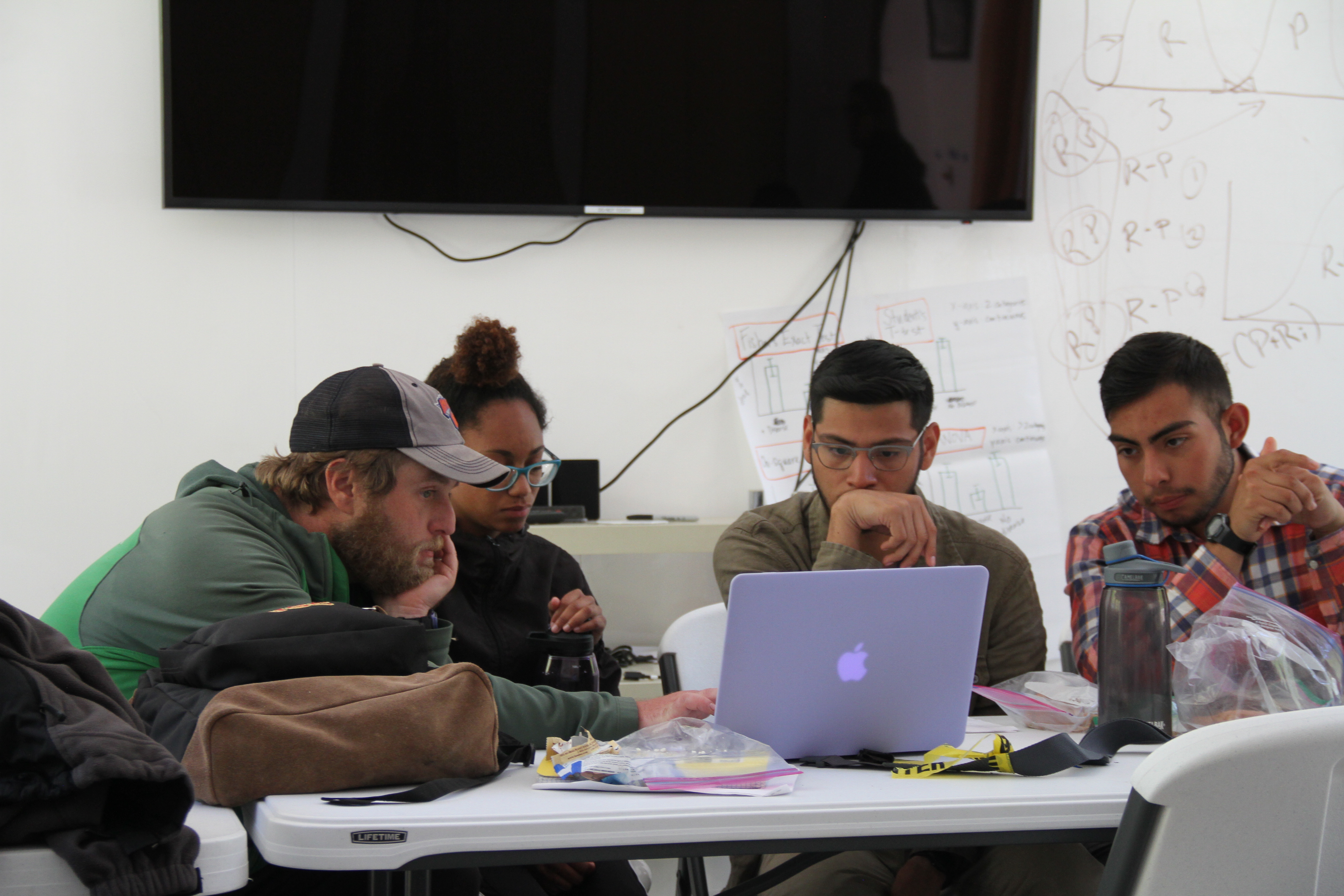
Mentor support is critical for helping students turn their passion for the outdoors into meaningful careers. Photos Courtesy of UCSC Doris Duke Conservation Scholars Program.
